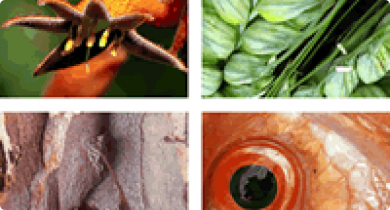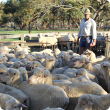Biosecurity
Biosecurity is fundamental for safeguarding our valuable agricultural resources against the threat and impacts of pests, weeds and diseases (pests).
Biosecurity is the management of the risk of animal and plant pests and diseases entering, emerging, establishing or spreading in Western Australia, to protect our economy, environment and the community.
To protect Western Australian agricultural industries from pests the Department of Agriculture and Food, Western Australia:
- Works with stakeholders to identify and manage biosecurity risks.
- Develops legislation.
- Establishes import controls.
- Conducts inspections.
- Provides quarantine services as required.
To find out more about what we do to protect agricultural production and export opportunities within the State please search our website.
Filter by search
Filter by topic
- Pests, weeds & diseases (113) Apply Pests, weeds & diseases filter
- (-) Remove Livestock biosecurity filter Livestock biosecurity
- (-) Remove Diseases filter Diseases
- Livestock health & diseases (109) Apply Livestock health & diseases filter
- Livestock disease surveillance (101) Apply Livestock disease surveillance filter
- Livestock & animals (90) Apply Livestock & animals filter
- Livestock species (72) Apply Livestock species filter
- Livestock management (33) Apply Livestock management filter
- Sheep (31) Apply Sheep filter
- Emergency animal disease preparedness (31) Apply Emergency animal disease preparedness filter
- Beef cattle (23) Apply Beef cattle filter
- Dairy cattle (19) Apply Dairy cattle filter
- Management & reproduction (13) Apply Management & reproduction filter
- Poultry & birds (12) Apply Poultry & birds filter
- Pigs (11) Apply Pigs filter
- Goats (9) Apply Goats filter
- Control methods (8) Apply Control methods filter
- Livestock movement & identification (7) Apply Livestock movement & identification filter
- Horses (7) Apply Horses filter
- Feeding & nutrition (7) Apply Feeding & nutrition filter
- Chemicals (7) Apply Chemicals filter
- Quarantine (6) Apply Quarantine filter
- Emergency response (6) Apply Emergency response filter
- Wildlife biosecurity (5) Apply Wildlife biosecurity filter
- Veterinary chemicals (5) Apply Veterinary chemicals filter
- Importing to Western Australia (4) Apply Importing to Western Australia filter
- Importing animals (4) Apply Importing animals filter
- Residues in livestock (3) Apply Residues in livestock filter
- Stockfeed (3) Apply Stockfeed filter
- Preventing residues (3) Apply Preventing residues filter
- Food, export & investment (3) Apply Food, export & investment filter
- Pests (3) Apply Pests filter
- Plant biosecurity (3) Apply Plant biosecurity filter
- Weeds (2) Apply Weeds filter
- Pest animals (1) Apply Pest animals filter
- Mechanical, physical and cultural (1) Apply Mechanical, physical and cultural filter
- Pest insects (1) Apply Pest insects filter
- Water (1) Apply Water filter
- Water management (1) Apply Water management filter
- Livestock research & development (1) Apply Livestock research & development filter
- Invasive species (1) Apply Invasive species filter
- Biosecurity governance (1) Apply Biosecurity governance filter
- Climate, land & water (1) Apply Climate, land & water filter
- Export services (1) Apply Export services filter
- Intrastate movement (1) Apply Intrastate movement filter
- Biosecurity and Agriculture Management Act (1) Apply Biosecurity and Agriculture Management Act filter




